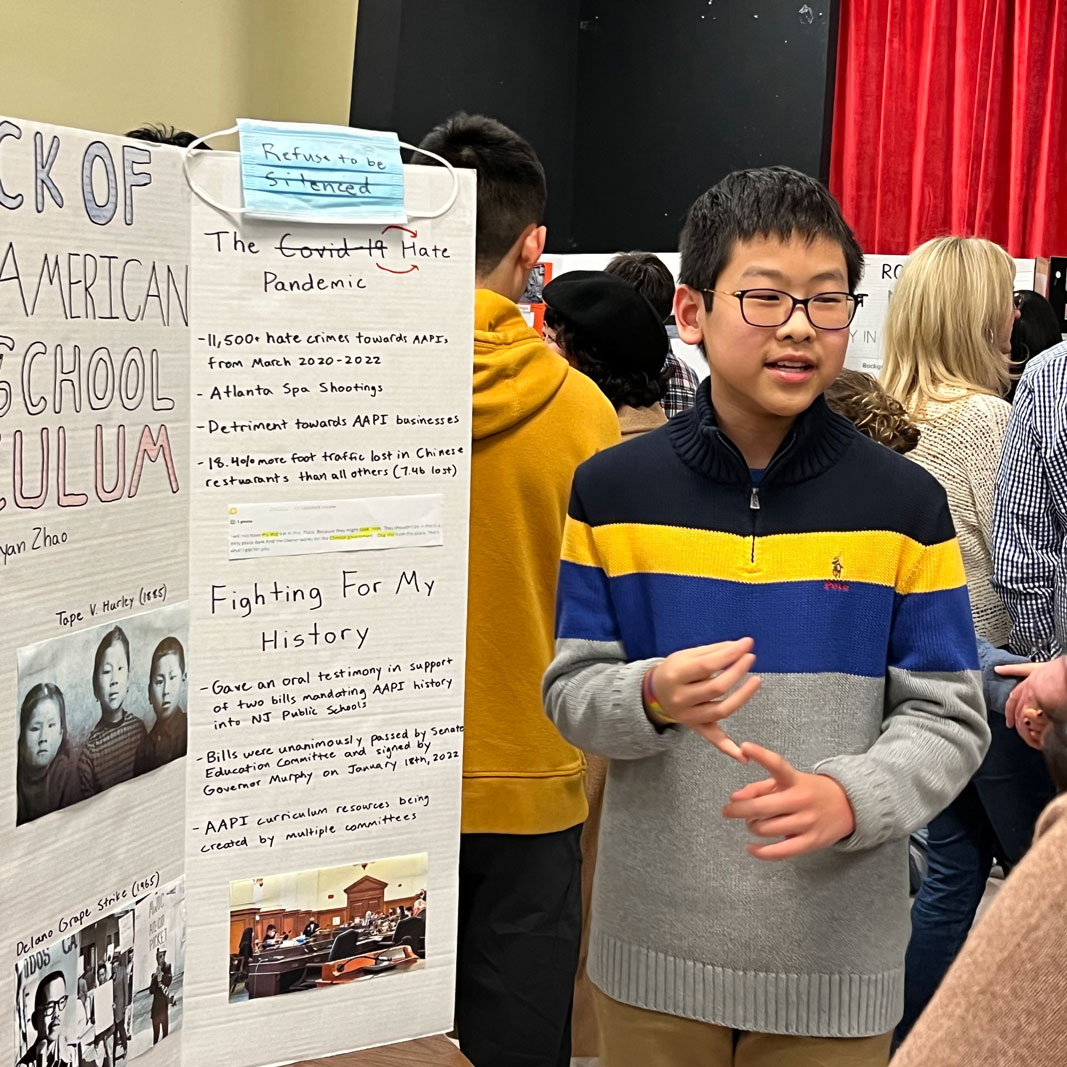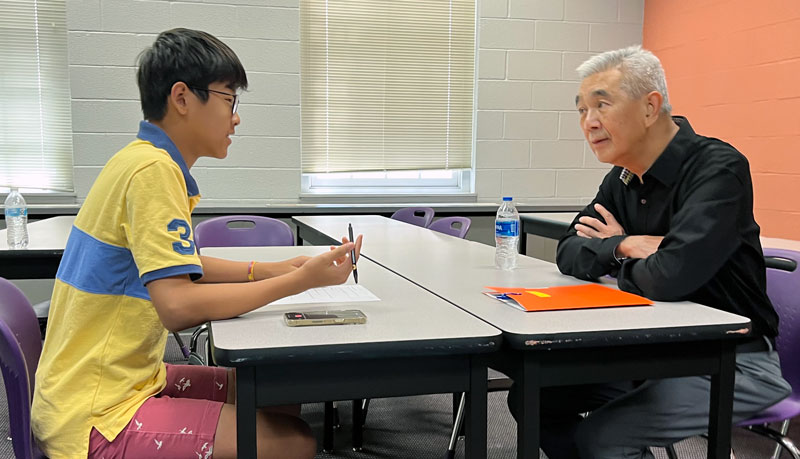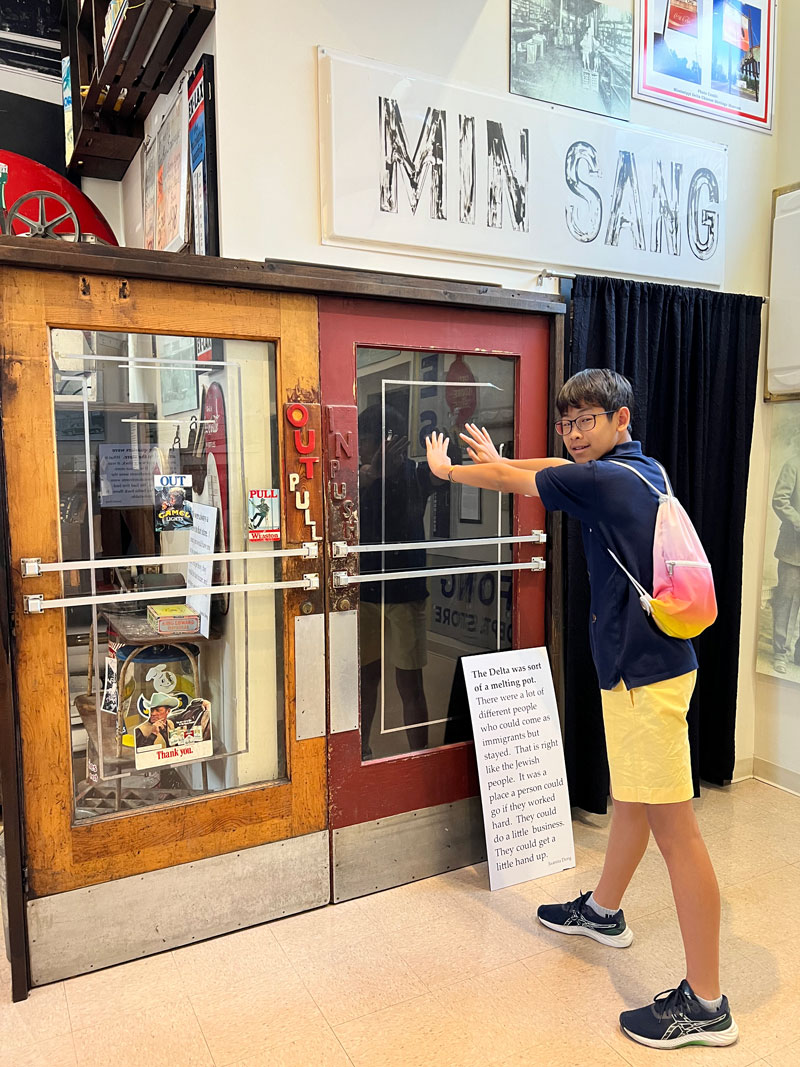Education for a New Generation

From the Fall/Winter 2024 Peddie Chronicle
A Peddie sophomore embraces the role of advocate for Asian American studies.
Bryan Zhao ’27 first encountered stereotypes against Asian Americans when children on his elementary school bus used thin eye expressions, saying “Chinese Eyes” and “Japanese Eyes.” “I kind of laughed at it because I didn’t really know how to respond,” Zhao recalled, “but it became one of my defining memories.”
In fifth grade, Zhao watched a PBS documentary introducing him to the long history of Asians in the U.S. The program reminded him of the incidents on the school bus, and he wondered how other Asian kids coped with stereotyping and discrimination. He later wrote an essay advocating for including Asian American and Pacific Islander (AAPI) history and contributions in the school curriculum, which was showcased at an Asian American United Coalition webinar.
When the pandemic hit in 2020 and racist acts against Asians escalated, Zhao had a shocking encounter with a passerby in his town.
“I was outside on the trampoline, and a guy walked across my backyard,” he said. “We made eye contact for a second, then he looked down, spat in my direction and walked away.
“I didn’t expect that to happen in my neighborhood,” he continued. “It was one of the reasons why I wanted to advocate for Asian American equality and awareness.”
Zhao joined the advocacy movement in 2021 when Make Us Visible New Jersey, an organization combating anti-Asian violence through education, urged state legislators to mandate AAPI studies in K–12 curricula.
“My parents subscribed to the Make Us Visible newsletter, and the organization was looking for young advocates to testify in the statehouse,” said Zhao. “So I signed up.” Zhao testified before the New Jersey Senate Education Committee as the youngest advocate. The legislation was adopted.
“It was a really gratifying experience, being able to fight for the inclusion of my own identity and history and also for my little sister’s,” said Zhao. “She’s in third grade now, and at the time, she was starting kindergarten. To know she will be able to learn about her own history is really important to me.”
“It was a really gratifying experience, being able to fight for the inclusion of my own identity and history and also for my little sister’s.”
Zhao believes the decision will provide momentum toward helping underrepresented Asian kids feel included — especially at school.
“Growing up was a bit of a struggle between being Asian and being American,” he said. “My parents cooked Chinese food at home and I embraced Chinese culture. But American history in my school was Abraham Lincoln and George Washington. There was never really an Asian face for me to identify with. So I felt like I’d always be Asian American and never just American.
“I think when the Asian American curriculum is added, Asian American students will be able to identify with the country and feel like a part of it and embrace it. That will be really big for them.”
Not long after Zhao’s visit to the statehouse, Make Us Visible New Jersey contacted him.
Chinese American historian Erika Lee had heard about the students who had testified and wanted to interview them for “Made in Asian America: A History for Young People,” a book she was writing with Christina Soontornvat. The book explores racism and marginalization of Asian Americans in the U.S. and amplifies their efforts to be seen and heard here.
Zhao was excited to contribute his story to the book and got another surprise: Turns out a picture his mom snapped of him presenting his Asian American history project at his eighth-grade curriculum fair had made it further than his family’s photo album.

“Dr. Lee sent me an email,” he grinned. “It said, ‘Look who is in today’s New York Times! Check out the review of our book in today’s paper!’”
Zhao indulged his passion for advocacy further last summer when he got to explore the history of Chinese Americans whose ancestors immigrated to the South 150 years ago. He also interviewed several active Asian Americans in Arkansas. “The community members went from sleeping in the back of grocery stores to becoming life savers and community leaders and builders — something I found very inspiring,” he said.


Zhao knows his testimony in the New Jersey statehouse and his contribution to the Lee/Soontornvat book were significant stepping stones toward Asian American inclusion. He also recognizes the challenges ahead in the classroom and why the effort to keep the conversation going is worth it.
“Even with these bills being passed, different schools have different curricula,” Zhao said. “It starts with different kids and different teachers at their own schools coming together to try to make this change.
“America is becoming more diverse by the day,” he continued. “It’s really important to be able to understand other people’s perspectives, where we’re all coming from, our histories and identities.”